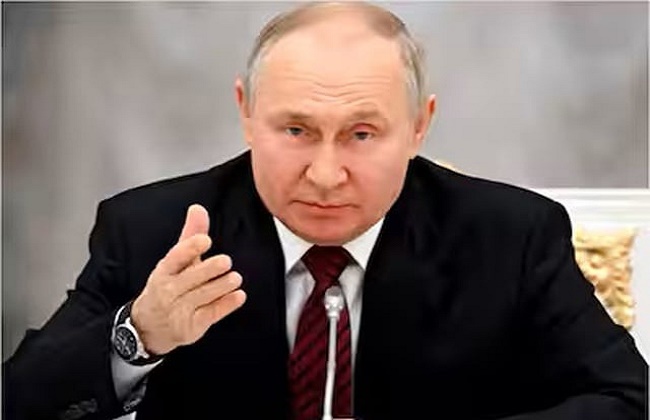
In perhaps the least surprising news of the year, Vladimir Putin has triumphed at the Russian ballot box and been enthroned for the fifth time as president. He will serve for six more years.
He will be 77 years old in 2030. According to the constitution, which he re-wrote to his benefit in 2020, he then could stand again for a further six-year term.
To put that in perspective, Putin already has ruled Russia as president or prime minister for 24 years, or the equivalent of eight Australian parliamentary terms. In that period, Australia has had eight prime ministers and changed governing party three times. The United States has had five different presidents; the United Kingdom seven different prime ministers.
In contrast to elections in the West, where the outcomes are genuinely in the hands of the voters and adjudicated by independent electoral commissions, Russia is different. As the former UK ambassador to Moscow, Laurie Bristow, wrote:
In Russia, the purpose of elections is to validate the decisions of its rulers, not to discover the will of the people.
Putin’s jaded view of the West
Putin now will appoint a new government. His picks will be intensely scrutinised for clues to a succession plan and future policies. Although he is a master of surprise, we should not count on Putin leaving any time soon. Only four leaders of modern Russia and the USSR have left the top job alive; the rest have died in office of natural or other causes.
Moreover, Putin’s actions over the past two years have been directed at moving Russia from authoritarianism to semi-totalitarianism. The Carnegie Endowment’s Andrei Kolesnikov has written persuasively of these tectonic shifts that recall the darkest years of Soviet Stalinism.
Putin has explicitly presented his war of choice in Ukraine as a proxy for a wider, long-term conflict with the West. He believes the West is irresolute, in decline, and easily distracted and deflected.
Former US President Donald Trump’s “have at them” attitude towards US allies and partners, and the woeful Western vacillation over further military aid to Ukraine, will only embolden Putin further. Buoyed by his ritual success in this weekend’s election, he will embark on further risky and provocative adventurism.
Read more: What can we expect from six more years of Vladimir Putin? An increasingly weak and dysfunctional Russia
